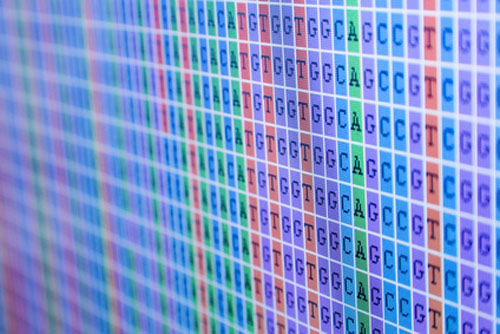
Element Biosciences, a biotechnology company based in San Diego announced on January 10 they have closed a Series B financing round to the tune of $80.3 million, with participation from new investors Fidelity Management & Research Company and JS Capital LLC. This would be in addition to existing investors Foresite Capital and Venrock, making the total amount of money raised more than $100 million. Proceeds from the financing will be used to accelerate the development of high-quality, low-cost, and easy-to-use genomic sequencing solutions.
Genetic sequencing has become an increasingly powerful tool in personalized medicine and the scientific understanding of biological functions. However, the financial costs of acquiring this information are still prohibitive for smaller research teams to pursue. Element Biosciences company announcement will be welcome news to scientists with less capital, as the company has stated they intend to create a system that will make the genomics industry more competitive.
Jim Tananbaum, an investor at Foresite Capital (one of Element’s backers), compared existing DNA sequencing machines to “mainframe computers” —giant machines used by big companies and governments for intensive computational tasks. Genetic sequencing requires a combination of biological samples, chemicals and assays, and a computer program that is capable of reading very large amounts of data very quickly. Genetic sequencing makes it possible to view and analyze the entire genome of an individual in a matter of hours, opening many new doors in research and discovery. This is the same type of sequencing that is marketed to customers of companies like 23andMe.
“Element [Biosciences] vision is to create disruption in each of the basic elements that comprise a sequencing platform, such as surface chemistry, sequencing chemistry, detection, and data analysis. With a combination of Element’s proprietary technologies and the latest developments in these respective areas, we have developed a flexible, modular, and high-performing sequencing platform,” said Molly He, co-founder of Element.
The DNA sequencing world is does not have much competition, and Illumina, the predominant maker of sequencing machines, has been attempting to make the space even smaller by acquiring one its competitors, Pacific Biosciences, for $1.2 billion. The Federal Trade Commission and the United Kingdom’s antitrust group asserted the merger would tip Illumina into monopoly territory, and blocked the deal (which Illumina later dropped), but it does highlight the need for more biotech companies to make research costs less expensive. It is of note that the CEO of Element Biosciences was the former director of Illumina.
While this new technology will hopefully lower costs to reach more consumers, genetic sequencing is hardly the only biotech supplier industry with room for more players. Much of the research tool kit is simple technologies that are relatively inexpensive and easy to make, but due to lack of competition have an extremely high markup value. For example, purchasing an antibody from certain biotech supplier can cost hundreds of dollars, and that same antibody from another brand can cost $5. It is not advisable to use different antibody isotypes in the same experiment, so once a specific antibody has been published, everyone wants the exact same antibody and the company raises the price because they do not specify the exact isotype and it would be too expensive to run the experiments to figure out what the type is. So, everyone who wants to repeat the published experiment must pay for it at the higher rate if they want to repeat the same experiment.
With the completion of this financing round, Element Biosciences stated they will focus on critical product development activities this year, including integration of the company’s innovations. To support its ambitious growth trajectory, Element has moved its headquarters in San Diego into a new, larger facility in University Towne Center, and plans to expand its team in both San Diego and the San Francisco Bay Area.
“We built our headquarters in San Diego, taking advantage of its renowned and vibrant biotech/life sciences community,” He stated. “Many of our new hires are from the San Diego area and many have earned their degrees from UCSD and other local research institutions. In addition, we expect to attract talent from other regions of the nation and contribute to expanding the biotechnology growth in San Diego.”











